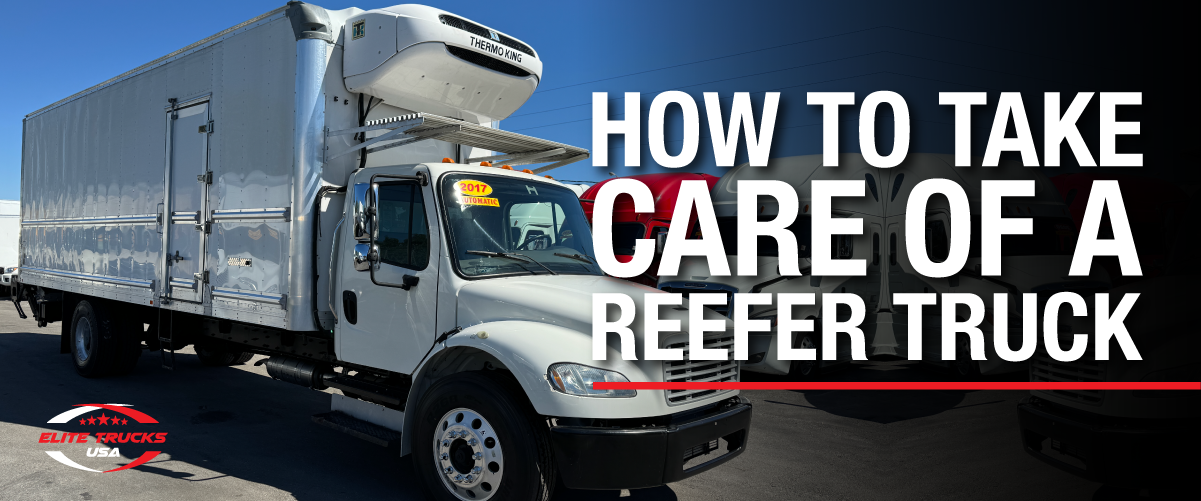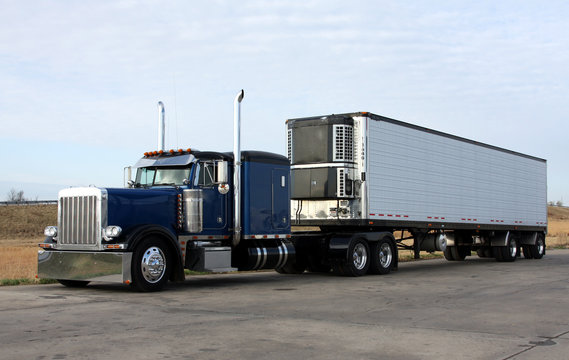Picking the Right Transportation Refrigeration System for Your Fleet
Selecting an appropriate transportation refrigeration system for your fleet is a critical decision that can substantially impact operational performance and product integrity. It necessitates a comprehensive understanding of your details refrigeration needs, including temperature needs and delivery timetables.
Understanding Your Refrigeration Needs
When selecting a transport refrigeration system, comprehending your specific refrigeration requirements is vital to ensuring item top quality and compliance with sector standards. Different variables need to be thought about to determine the most appropriate system for your operation. These consist of the type of products being transported, their temperature level requirements, and the period of transportation.
For subject to spoiling products, such as fresh produce or drugs, specific temperature level control is vital. Comprehending the temperature level array required for each and every item permits the choice of a system that can maintain those problems consistently. Additionally, take into consideration the frequency of shipments and the distance traveled; longer journeys might require systems with improved insulation or back-up power choices to avoid temperature level changes.

In addition, the ability of the refrigeration unit must line up with your load dimension. Straining a system can bring about insufficient air conditioning, while an extra-large system may be ineffective and costly. Finally, regulatory compliance is important; acquaint yourself with local and worldwide guidelines governing the transport of temperature-sensitive products. By thoroughly analyzing these variables, you can make sure that your picked transportation refrigeration system effectively meets your operational requirements and keeps item stability.
Types of Transport Refrigeration Solution
Choosing the ideal kind of transportation refrigeration system is essential for making sure the secure transit of temperature-sensitive goods. There are numerous systems offered, each developed to satisfy details requirements and applications.
These systems are typically favored for their performance and lower first costs. An additional alternative is the central refrigeration system, which serves numerous areas or vehicles from a single compressor device.
Additionally, there are self-contained refrigeration systems that integrate the compressor and evaporator in one bundle. When room is limited, these systems are perfect for smaller automobiles or. For specialized applications, such as transferring pharmaceuticals or perishables, cryogenic refrigeration systems might be used, using liquid nitrogen or carbon dioxide to maintain ultra-low temperatures.
Last but not least, crossbreed refrigeration systems that combine diesel and electrical power are becoming progressively prominent, supplying versatility in energy usage and minimizing environmental influence. Comprehending these different kinds allows fleet drivers to make educated decisions customized to their particular functional requirements.
Secret Attributes to Consider
Exactly how can one make sure that a transport refrigeration system fulfills all functional needs? To accomplish this, several essential features need to be thoroughly examined. Temperature level control is important; systems should supply accurate temperature level settings to fit different products, varying from frozen products to perishable products.
Energy effectiveness is an additional crucial consideration, as it impacts functional costs. Try to find systems that make use of advanced technology, such as variable rate compressors, to enhance power use without compromising efficiency.
An additional attribute to examine is the dependability and resilience of the tools. Systems created from high-quality products and developed for strength versus severe conditions will reduce maintenance expenses and downtime.
Furthermore, the convenience of upkeep and access of parts can significantly affect functional effectiveness (thermo king truck refrigeration). Features like modular styles or remote monitoring abilities can improve solution processes
Last but not least, compatibility with existing fleet administration software application can enhance tracking and reporting processes. By concentrating on these essential attributes, fleet drivers can ensure that their transportation refrigeration systems not just meet existing needs but also adjust to future needs.

Budgeting for Refrigeration Solutions
Examining essential features of transport refrigeration systems is just one part of making sure functional efficiency; budgeting for refrigeration options is similarly important. A well-structured budget not just encompasses the initial acquisition rate but also considers long-lasting functional prices, including energy consumption, upkeep, and possible repair work requirements.
When establishing important site a budget plan, fleet supervisors ought to first examine the complete expense of possession (TCO) This includes not only the acquisition expenses but additionally ongoing expenditures associated with fuel performance and the toughness of the refrigeration units. Selecting systems with greater power effectiveness rankings might yield considerable cost savings over time, reducing in advance expenses.
Furthermore, fleet operators should represent prospective scalability. As companies grow, the refrigeration requires may change, demanding upgrades or added units. Preparation for these future expenditures can prevent financial stress.
Financing options can additionally play a crucial duty in budgeting. Leasing, finances, or outright purchases each have distinctive monetary effects, and understanding these can aid in making a notified decision. Eventually, a detailed spending plan that considers both future and instant requirements makes sure that transport refrigeration systems contribute favorably to the total operational efficiency of the fleet.
Maintenance and Assistance Alternatives
In the world of transportation refrigeration systems, efficient upkeep and support alternatives are crucial for making sure optimum performance and durability. Routine maintenance is important to avoid breakdowns and preserve the integrity of temperature-sensitive freight. It is recommended to establish a routine examination schedule with qualified specialists who can execute necessary checks and repairs on refrigeration devices.
Assistance options should include a robust service contract, covering both routine upkeep and emergency situation repairs. This ensures that your fleet has accessibility to prompt support, minimizing downtime and keeping operational effectiveness. Many producers provide extensive assistance bundles that include training for your team, allowing them to perform basic troubleshooting and maintenance tasks.
Furthermore, utilizing remote tracking technology can boost your maintenance approach - thermo king truck refrigeration. These systems provide real-time data on temperature and efficiency, enabling positive Read Full Report steps before issues escalate. Investing in training and modern technology not just enhances your fleet's reliability yet likewise extends the lifespan of your refrigeration systems
Eventually, a tactical strategy to maintenance and support will certainly guard your financial investment and guarantee that your transport refrigeration systems operate at peak performance, delivering constant results for your organization.

Verdict
In final thought, selecting the ideal transportation refrigeration system for a fleet demands a thorough evaluation of specific refrigeration requirements, system types, and necessary functions. Prioritizing operational efficiency, power intake, and maintenance considerations is essential article source for making sure integrity. Furthermore, cautious budgeting and preparation for future scalability will certainly contribute to the long-lasting success of the refrigeration approach. Ultimately, an educated decision will enhance item stability and maximize general logistics procedures within the fleet.
Choosing an appropriate transport refrigeration system for your fleet is a crucial decision that can substantially affect functional effectiveness and item honesty.When selecting a transportation refrigeration system, recognizing your specific refrigeration requirements is paramount to making certain item quality and compliance with industry requirements. By completely analyzing these factors, you can ensure that your picked transportation refrigeration system efficiently satisfies your operational requirements and preserves product integrity.
Eventually, an extensive budget plan that thinks about both future and instant demands makes certain that transport refrigeration systems add favorably to the overall functional efficiency of the fleet.
In conclusion, selecting the suitable transportation refrigeration system for a fleet requires a complete analysis of certain refrigeration needs, system kinds, and essential attributes.